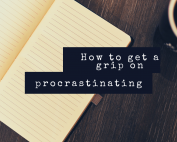
Oh, the Social Anxiety.
It makes us QUIET when we’d love to say something, because we have all these negative thoughts about our communications skills, including:
1. I have nothing interesting to say.
2. Everyone will think I’m so boring.
3. I’d better not say anything- I might say something stupid and everyone will laugh.
(By the way, this is in both personal and professional life).
Then we have the total opposite:
Feeling the responsibility to make a small talk and fill in what we perceive as ‘awkward silences’.
This is when we feel pressured to make annoying small talk with people we know (less anxious) and people we don’t know (very anxious).
But do we really need to make a small talk?
NO.
Read it again.
YOU DON’T NEED TO MAKE A SMALL TALK IF YOU DON’T WANT TO.
I’m not encouraging you to be rude and not respond to people’s well-meaning questions and genuine interest in you.
What I’m saying is this:
It’s OK to be silent in social situations.
As Social Anxieters, we will feel anxious when there are what we deem to be ‘awkward silences’.
We feel under pressure to fill them.
We then beat about the bush, say things we may regret- we’ll literally say anything, just to fill those silences in.
If this is you, next time you’re in this situation, practice the art of SILENCE.
SILENCE IS AN IMPORTANT PART OF NOT ONLY EFFECTIVE COMMUNICATIONS, BUT US.
We need to learn this skill and apply it to our lives.
SILENCE
Silence is an incredibly important life and communication skill.
When used correctly, it commands respect. It gives you the ability to remain assertive in situations.
I teach this skill during my Social Anxiety and Assertiveness programs. We learn, through theory and practice, how to use it, when to use it, why we’re using it and so on.
Interestingly, using the skill of silence correctly helps with Anxiety AND grows your confidence.
Silence + assertive communication skills= HEALTHY SELF- CONFIDENCE.
Book Complimentary Consultation for help with Social Anxiety & Assertiveness (Communication) Problems:
Follow me on Facebook:
Say Goodbye to Worry: A Simple Technique You Can Master Today
Do you ever find your mind clouded with worry? Whether it's about your job, relationships, or the future, worry can feel all-consuming. If you can relate, you're not alone. But what if there was
The Art Of *Silence* When We Struggle With Social Anxiety
Oh, the Social Anxiety. It makes us QUIET when we'd love to say something, because we have all these negative thoughts about our communications skills, including: 1. I have nothing interesting to say. 2.
Anxiety And Procrastination At Work
Can Anxiety cause Procrastination? Absolutely. Anxiety and Low Mood can both result in Procrastination at work. In this article, I'm going to take a closer look at what Procrastination is, and how to help yourself if you
Social Anxiety At Work
In this article, we are going to be looking at some of the most common symptoms of Social Anxiety at work. We’ll also look at the impact of untreated Social Anxiety on your career
Assertiveness Mastery: 9 Effective Steps to Improve Assertiveness Skills and Boost Self-Confidence
In today's fast-paced world, mastering assertiveness skills has become an essential tool for personal and professional growth. It's not just about being confident; it's about communicating your needs and respecting others in a balanced
How To Get A Grip On Procrastination
Today, I was inspired to write about procrastination by a long-term, young client of mine. We've been working together for the past 2 years (on and off), as he struggles with Social Anxiety
How Assertive Are You Quiz
NEW! Self-Help Guide on *Building Assertive Mindset: A Guidebook and Workbook for Assertive Living* is Available Now on Amazon! Discover the power of assertiveness with
How To Tolerate Uncertainty
Do we need to know EVERYTHING about events that haven't happened yet? One of the hardest things we have to deal with, when we struggle with Anxiety, is uncertainty of
How To Stop Worrying And Start Problem-Solving
Worrying Versus Problem-Solving: Many people believe that worrying and problem-solving are the same thing, and that worrying is very beneficial. It's called having 'positive beliefs about worry'. But the truth
Social Anxiety And Avoidance
Let's take a look at what avoidance is: Avoidance is a type of behaviour that helps us deal with uncomfortable or scary situations. While it's mostly observed in Social Anxiety






